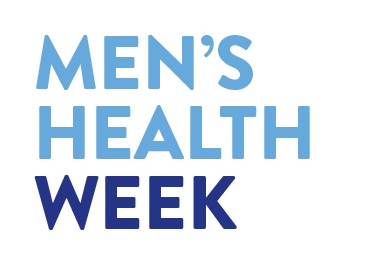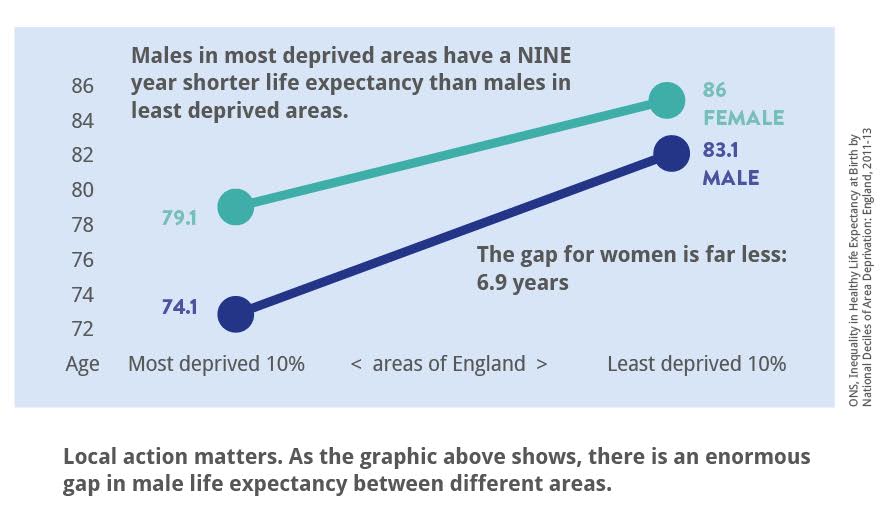Compiled by the Men’s Health Forum, December 2014
Summary
- Life expectancy in the UK for males is 78.2 years and for females 82.3 years
- Healthy life expectancy in the UK for males is 63.5 years and for females is 65.7 years
Life expectancy
- Life expectancy at birth and at age 65 is lower for men than women:
- Life expectancy at birth in the UK increased in each three-year period between 2004–06 and 2008–10, rising from 77.0 to 78.2 years for males and from 81.3 to 82.3 years for females (Reference: ONS).
- Between 2004–06 and 2008–10 life expectancy at age 65 in the UK increased from 17.0 to 18.0 years for men and from 19.8 to 20.6 years for women (Reference: ONS).
- There is a clear relationship between life expectancy and socio-economic status.
- In England and Wales in 2002-6, life expectancy at birth for males in the higher managerial and professional group was 80.4 years; it was 74.6 years for men in the routine group. The range, from highest to lowest, was 5.8 years. The comparable range for women was 4.2 years (83.9 – 79.7) (Reference: ONS). The social gradient for men is therefore steeper.
- The impact of socio-economic status on life expectancy is also reflected in local area data. Over the 2004–06 to 2008–10 period, the local area with the highest male and female life expectancy at birth was Kensington and Chelsea. For males life expectancy in this area increased by 2.1 years from 83.0 years in 2004–06 to 85.1 years in 2008–10. At the same time female life expectancy improved by 2.7 years from 87.1 years to 89.8 years (Reference: ONS).
- The area with the lowest male and female life expectancy at birth in each period was Glasgow City. In 2008–10 male life expectancy in this area was 71.6 years, 13.5 years lower than in Kensington and Chelsea. For females life expectancy in Glasgow City was 78.0 years in 2008–10, 11.8 years lower than in Kensington and Chelsea (Reference: ONS).
- An alternative way of expressing the difference in life expectancy between men and women is that, on average, men live two hours fewer per day (Reference: BMJ).
- There are some specific groups of men with much lower levels of life expectancy. For example, the average age of death of homeless men is 48 (Reference: Crisis) and gypsies/travellers are estimated to live 10-12 years fewer than the settled population (Reference: Irish Traveller Movement).
Healthy life expectancy
- Healthy life expectancy (HLE) at birth and at age 65 is lower for men than women.
- In 2008-10, healthy life expectancy for males at birth in the UK was 63.5 years, equivalent to more than 81 per cent of total life expectancy spent in very good or good general health. For UK females, HLE at birth was more than two years higher at 65.7 years, equivalent to 80 per cent of total life expectancy (Reference: ONS).
- Females have longer life expectancy and HLE than males. However, males tend to spend a greater proportion of their lives in very good or good general health because the gap between life expectancy and HLE is narrower compared with females (see ONS).


